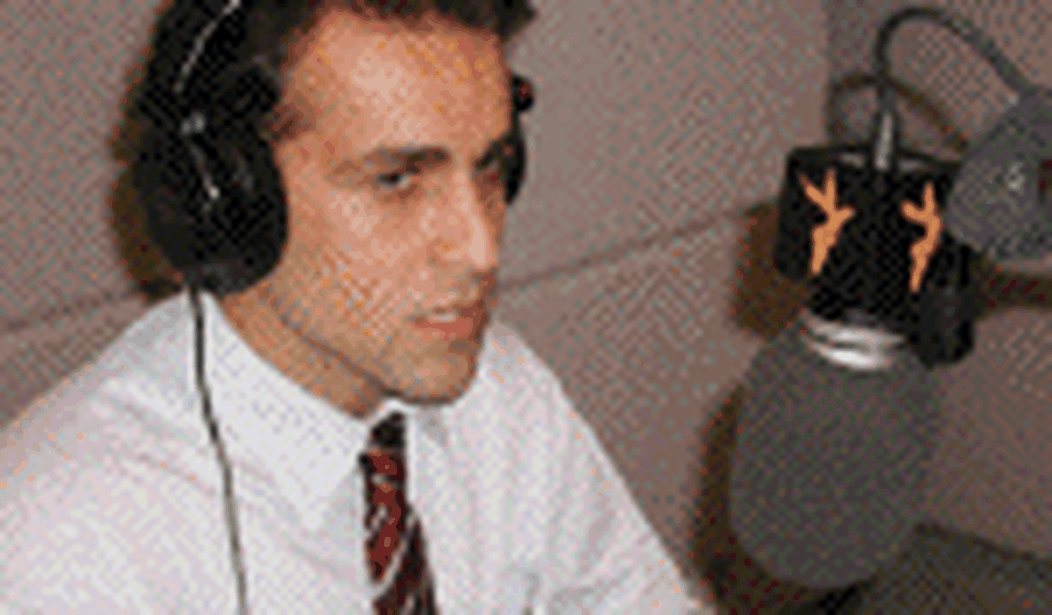by Banafsheh Zand-Bonazzi
The Broadcasting Board of Governors’ spokesman, Joseph O’Connell, responded to Ali Ghaderi and Karim Abdian’s charges that the government-funded Voice of America Persia and Radio Farda are broadcasting the Iranian regime’s propaganda
It should be noted that there is a new chairman of the Broadcasting Board of Governors, Jim Glassman, and he is aware of the controversy regarding broadcasting into Iran and is committed to improving it.
It is true that Voice of America’s Charter indicates that it has to broadcast accurate news to its audience (and nobody is asking that it do otherwise), but the Charter also states: “Voice of America is committed to promoting freedom and democracy”. After the collapse of the Soviet Union, interviews with participants in anti-Soviet movements verified the effectiveness of VOA broadcasts in both transmitting information to closed societies and inspiring their oppressed people to continue to push for democracy and freedom.**
It is naive to think that VOA was created just like any other radio or tv station, only to broadcast news to the world. People can get accurate news from other sources as well. VOA is always regarded as the voice of America the one that brings hope to the oppressed, in places like Iran and North Korea, where people are not allowed to know about the free world.
The people of Iran have been living in a prison for many years. They are not allowed to go to their favorite websites to get the news, and they have to register their weblogs so that the government can monitor every comment they make.
Recent crackdowns on women, journalists, teachers, and union leaders are an indication that the Iranian regime, and the Iranian people are at a very critical point. They have an important decision to make. At this important historical juncture, the interests of the Iranian people converge with the goals of the American government, whose patience is tested by the IRGC sabotage in Iraq. It is in this period that all human rights activists, from all around Iran, want to be heard and want their daily struggles broadcast.
The Voice of America does not do a good job in broadcasting human rights violations in Iran. The two-hour news block (News & Views) is more dedicated to internal problems in America, floods, miners being trapped, opposition to President Bush, problems in remotest places in the world, and the political struggles in Congress. The Iranian people have to sit and wait for two hours to hear that two arrested students from Daftare-Tahkime-Vahdat and Islamic Associations have been freed.
But there is more to human rights violations than just student issues. A block of the 6 hours available for Persian language TV broadcasting must be designated to daily problems that ordinary people face. In this way, people could find out about the news that is blocked all over the country and from all the media. Right now, the majority of events in Iran are not covered by VOA. The Persian language broadcasting seems to lack seriousness, credibility and the knowledge of Iranian internal political conditions. This is because the production is often done by Americans who, though competent professionals and well-intentioned, are unfamiliar with Iranian conditions, and thus are unable to design and implement a strategic communication plan for Iran and to quickly improve the content of the programming.
By now, everybody knows that there are obvious weaknesses in how this widely-seen, critical broadcast is handled. Also, as everyone knows, because of insufficient oversight, broadcasters influence news and analysis with their personal political tendencies. It is unfortunate that despite the harsh treatment of minorities in Iran, months go by and none of the deepening problems of Azeris, Ahwazis, Balochs and others, are told to the vast audience in Iran which has no other sources on which to rely.
Mr. Glassman is the equivalent of the Calvary for the BBG. Let’s hope he moves as quickly as he can to accomplish this important and enormous task.
**Conference Report, Cold War Impact of VOA Broadcasts, Hoover Institution and the Cold War International History Project of the Woodrow Wilson International Center for Scholars, Oct. 13-16, 2004.
Banafsheh Zand-Bonazzi is an activist, writer and daughter of Iranian journalist and political prisoner Siamak Pourzand









Join the conversation as a VIP Member